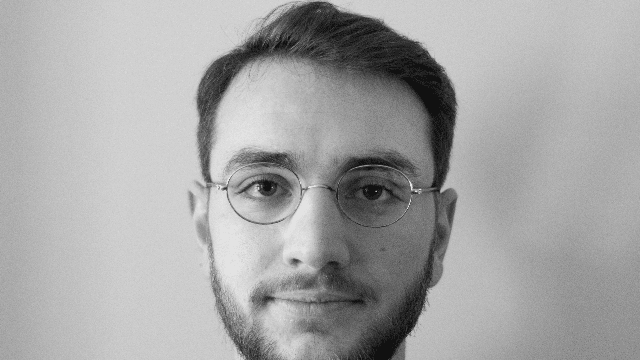Marc Alecian: From ENS Paris-Saclay to the Corps of Bridges, Waters, and Forests (IPEF)
Congratulations to Marc Alecian, winner of the Ingénieurs des Ponts, des Eaux et des Forêts (IPEF) competition in 2023. Discover his journey at ENS Paris-Saclay.
What is your background?
I joined ENS Paris-Saclay in 2018, in the Saphire program, after completing a Preparatory Class for Grandes Écoles (CPGE) in Physics and Chemistry. From the start, I aimed to specialize in the Department of Civil Engineering and Environment, aligning with my interest in territorial development and major infrastructure projects. Joining the IPEF corps after my four years at ENS was the perfect way to fulfill this aspiration. It ensured that I could work for the government, engaging in exciting projects, while being part of a community that promotes strong cultural and scientific emulation (the IPEF corps is under the supervision of the Ministry of Ecological Transition and Solidarity, as well as the Ministry of Agriculture and Food Sovereignty).
After completing my master's degree in Sustainable Envelopes and Construction at ENS Paris-Saclay, I pursued a master's degree in Transportation & Mobility at the École nationale des Ponts et Chaussées and the School of Urban Planning in Paris. This allowed me to deepen my knowledge of environmental issues related to transportation and territorial planning. Subsequently, I concluded my studies at the Paris School of Economics, focusing on urban economics, energy economics, and public intervention economics. This path provided me with a comprehensive and informed perspective on territorial development, always closely connected to scientific research in this field. This is how I presented my journey to the IPEF corps examination board, and it seems they appreciated it, granting me the first place in the competition!
What does the competition for the corps of engineers of bridges, waters, and forests entail?
The competition is a high-level civil service examination, recruiting senior officials who will be part of the state's top management and leadership. It consists of three stages:
- A selection based on a dossier, including a cover letter, a CV, and a detailed "additional note" outlining the candidates' project.
- A written exam at an examination center.
- An oral exam at the ministry in front of about ten people.
What is the benefit of taking the competition?
Once obtained, the competition assures us a position within the IPEF Corps, which is one of the major technical bodies of the state. It also commits us to serving the state for eight years.
How will it serve you?
I took the competition because the Corps ensures that I work on energy and ecological transition issues, leveraging all the skills acquired during my time at ENS, while working for the common good. In concrete terms, we are called to work in decentralized state services, in administration, or in any projects in which the state (and particularly our supervising ministries) is involved, both in France and abroad (notably the European Commission). The goal is to contribute to the development and implementation of public policies.
What are your professional projects?
Currently in the first year of training in the IPEF Corps, I am working for the Princely Government of Monaco in public project management. I am a mission officer for sustainable construction within the Public Works Department. This department is a service of the Department of Equipment, Environment, and Urban Planning, which is the Monegasque equivalent of the French Ministry of Ecological Transition. In the future, I aim to continue my involvement in public project management for the French state in the Paris region, likely within the Public Agency for Judicial Real Estate (APIJ).
What would you like to say to students who are hesitant to come to ENS Paris-Saclay?
I owe a great deal to ENS Paris-Saclay, both academically and personally. Besides the impeccable quality of the teams in the Department of Civil Engineering and Environment (DER GCE) and the pedagogical content of the programs, I was able to engage in fascinating activities, both associative and academic, not directly related to DER GCE. For instance, I took courses in the epistemology of sciences and in science and technology in the public sphere, within the Department of Humanities and Social Sciences. I highly recommend this interdisciplinary approach to all ENS students, as it is crucial for understanding the role of sciences in society, the existing and potential interactions, as well as our role as future ENS graduates in our country.

Comments0
Please log in to see or add a comment
Suggested Articles



